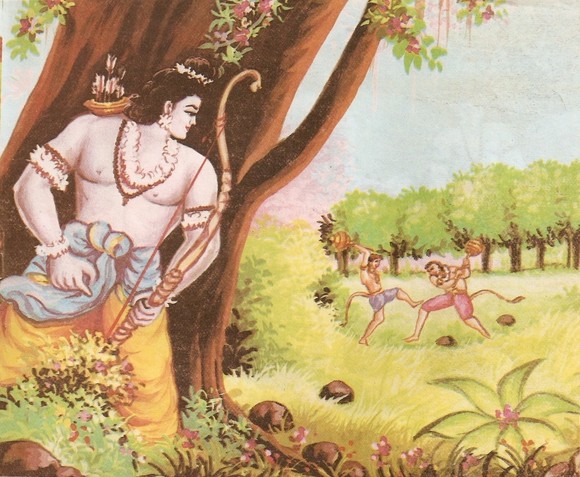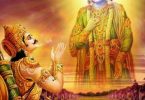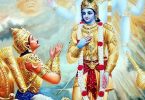Question: Are the vanaras under the codes of Manu?
It would seem so, based upon Rama’s explanation to Vali as to why he was to be slain: for violating the dharmic code of co-habitation with his younger brother’s wife.
On the other hand, Rama justified killing Vali from behind a tree because that kind of conduct is not adharma — for an animal to be killed in such a concealed manner.
Are the vanaras “manusya” or not?
The following may have some bearing upon the vanaras (as well as others than earthly residents, including devas — since the vanaras are sons of devas): namely, that Manu’s jurisdiction extends beyond earthly humankind.
SB 3.6.6 purport: “Manu is the original father of mankind, and therefore, in Sanskrit, mankind is called manusya. Humanity in different bodily qualities is distributed throughout the various planetary systems.”
Answer by Romapada Swami:
1. What is the extent of Manu’s jurisdiction? Is it merely the earth planet, or Jambudvipa? If latter, Kimpurusa-varsa is one of the tracts of land within Jambudvipa.
When a new Manu arrives, the entire administration across all planetary realms changes (new demigods, new Indra, new seven sages, etc.). It would seem that Manu’s laws apply according to the realms. (SB Canto 7, chapter 8 indicates all the Manus and different leaders of the realms offered prayers of gratitude to Lord Nrsimhadeva so they may resume their services which were obstructed by Hiranyakasipu).
2. By the nomenclature – “va-nara” (literally, “Or-human”) or “Kim-purusa” (literally, “what kind of human”) – it is possible that Manu’s rules apply. There is evidence for a structure of vanaras organizing themselves as King and subjects. In addition, in the Uttara Kanda of Valmiki Ramayana, we read about Vali doing sandhya-vandana and then taking Ravana as a hostage when Ravana tried to attack Vali surreptitiously. Since monkeys don’t perform sandhya-vandana, the description of Vanaras more suitably fits in with this etymological meaning of the word “va-nara.”
3. In the dialog between Ramachandra and Vali, the argument of violating a moral code is offered by Ramachandra when Vali objects to his being treated unfairly or unjustly (ethics and morals among the vanaras). Later, the argument of shooting him from a hidden place is offered when Vali identifies himself as an animal of no worth to a human. As I understand it, the responses to Vali’s questions are as per his identification of himself (as he toggles between human-like and animal-like).







